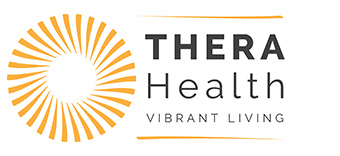Being a mum can be one of the most rewarding and yet one of the most tiring occupations going.
When you bring your little bundle of joy home for the first time the option of resting up and getting enough sleep, to recoup and recover, is usually a pipe dream. Then if you are unlucky enough to have a little one who is not sleeping well, throw in low iron levels and being too busy to eat well, and other children to look after, it is not hard to see how exhaustion can set in.
The good news is though that there are plenty of things you can do naturally to give your energy levels a much-needed boost.
Get some sleep
Firstly, it is important to grab sleep were you can to recharge the batteries. So when your little one has a sleep in the day, make sure you have one too. The washing and cleaning up can definitely wait.
Go natural
Eat wholesome natural foods, preferably organic, including plenty of fresh fruits, vegetables, legumes, nuts, seeds and wholegrain breads and cereals. A healthy diet is important to supply you with all the vitamins and minerals you need for energy production and good health. Remember that fresh and unprocessed is best. Drinking plenty of water is also very important, so aim for at least 2 Litres a day.
Keep your blood sugar levels balanced
Keep your energy levels up by eating smaller, frequent meals throughout the day, including nutritious protein-rich snacks. Limit any sugary, processed foods that cause your blood sugar levels to rise rapidly then plummet, which will leave you feeling even more exhausted. Protein-rich meals will help stabilise your blood sugar levels and help you maintain more balanced energy levels. Good protein choices include nuts, seeds, yoghurt, organic eggs and chicken, fish, lean meat, tofu and legumes. Trail mixes made up of raw almonds, brazil nuts, walnuts, sunflower and pumpkin seeds with some dried fruits, or hummus with vegetable sticks or wholegrain crackers make excellent snacks. Protein powders can make a healthy addition to a busy mums diet, great for making fruit smoothies, and protein balls to snack on when you are out and about. Brown rice protein powders are particularly beneficial for breastfeeding mums as rice is hypo-allergenic and won’t cause digestive complaints in lactose sensitive individuals.
Another factor to consider is balancing your blood sugar levels is including omega 3 into the diet. Insulin resistance produces high blood sugar and results from lifestyle habits beginning in childhood including weight gain brought on by fast food dining and low omega-3 consumption. Over time, these changes lead to a loss of blood sugar control as the ability of body tissue to react to insulin slowly stops working. When this happens, insulin secretion increases in an effort to balance the condition until finally the insulin producing cells are depleted and cease to function. From starting with good habits early and eating foods high in Omega 3, such as oily fish like sardines and mackerel or taking a good quality fish oil supplement, you can help prevent blood sugar issues now as well as later in life.
Choose wholegrain over ‘white’ refined carbohydrates
Choose natural wholegrain, complex carbohydrate foods (wholegrain breads and pasta, brown rice, quinoa and whole oats), over refined ‘white’ carbohydrates (aka: white bread and pasta, commercially baked cakes and cookies made with white flour, sugary breakfast cereals). Wholegrains are rich in fibre and a good source of carbohydrates, which will provide you with a slow, steady supply of energy throughout the day, as well as B vitamins, needed for energy production. Eating ‘white’ carbohydrate foods, on the other hand, will cause a sharp rise then drop in blood sugar levels, which will leave you feeling tired and flat and craving more sugary, ‘white’ carbohydrate foods. This is also a trigger for your body to lay fat.
The importance of iron
Low iron levels are very common in women, especially post pregnancy. Iron deficiency can be a major cause for women feeling tired and run-down. Iron plays an essential role in energy production, and is needed to make red blood cells to transport oxygen to all the cells in the body. Iron is also important for strengthening the immune system to protect you from colds and flu and other infections. Common symptoms of iron deficiency are tiredness, muscle weakness, lowered immune function, difficulties concentrating and poor memory.
Women’s iron requirements are a lot higher than men’s, and it increases by almost 10 fold during pregnancy and breastfeeding. This increased demand is often hard to meet by diet alone, so iron supplementation along with a healthy well-balanced diet is important for mums.
Not all iron supplements are created equal though. Iron supplements made with iron sulfate or ferrous sulfate can cause digestive upsets including constipation. The type of iron supplement you should be using is one made from organic chelated iron, which is easily digested and absorbed, and just as effective as the other type of iron, but without the unwanted side effects. Organic iron supplements don’t cause constipation or digestive complaints. A good iron supplement will also contain vitamin C to help improve iron absorption. You should also make sure you eat plenty of iron rich foods such as red meat, legumes (especially lentils), wholegrain breads and cereals, and green leafy vegetables. Vitamin C helps improve the absorption of iron, so include some vitamin C rich foods like tomatoes, orange, lemon, broccoli, parsley or cabbage with meals.
Energy boosting B vitamins and magnesium
B vitamins and magnesium are two important nutrients needed for energy production. They are also your ‘anti-stress’ nutrients to help you deal with being a busy mum in a healthier way. Supplementation is recommended together with including foods rich in vitamin B and magnesium, such as wholegrain cereals, nuts, seeds, legumes, eggs, milk and green leafy vegetables.
Super spirulina
Taking the superfood spirulina can help give you a much needed boost in energy. Spirulina is an extremely nutrient-rich food, including protein, omega-3 fats, B vitamins, iron and magnesium. Spirulina also has immune boosting properties and can help keep your blood sugar levels more balanced. A good maintenance dose is around 6 tablets or capsules a day. You can also buy spirulina powder which is easy to add to juices and smoothies. A green smoothie with green leafies (spinach and kale), cucumber, celery, apple, avocado and a heap teaspoon of spirulina is a perfect way to start the day.
By Lisa Guy, Adv ND, Adv Herb Med, Adv Hom, Adv Nut, BHSc.
Lisa is the author several books including My Goodness: all you need to know about children’s health and nutrition, Heal Yourself, and Pregnancy Essentials. She is also Body and Soul magazine’s resident nutrition expert. Lisa is driven by a desire to help people achieve their happiest, healthiest selves by using healing herbs, homeopathic remedies, and clean, wholesome foods that are full of nutritional goodness. Lisa has a particular interest in infant and children’s health and helping support women through pregnancy and beyond. Read more about Lisa here
The Nourishing Hub is an online health store dedicated to the unique needs of women and their families. The objective of the site is to nourish you with the best natural and organic health products, natural remedies and nutrient dense foods.








Leave a Reply
Want to join the discussion?Feel free to contribute!